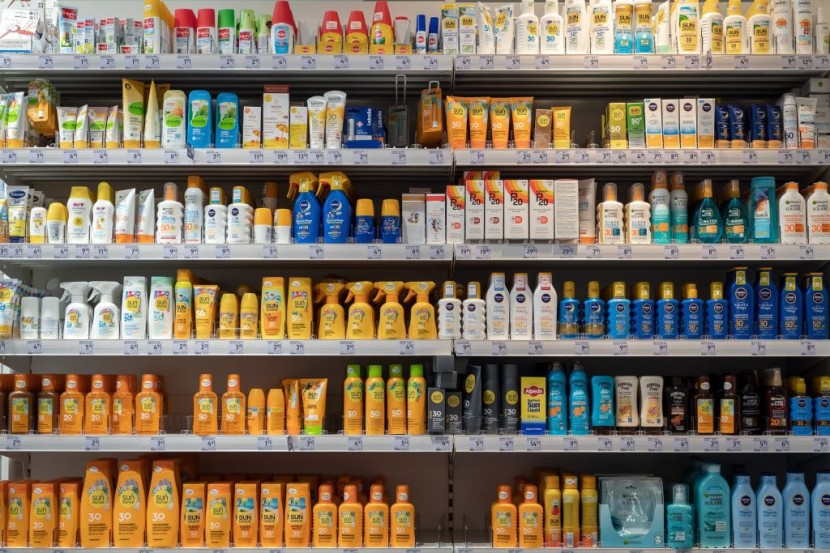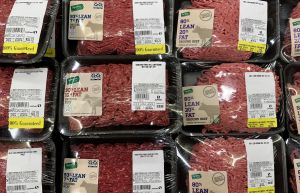
Johnson & Johnson announced a recall of five of their sunscreen products on Wednesday after certain samples were discovered to have low quantities of benzene, a chemical that can cause cancer if users are exposed to it repeatedly.
Aveeno Protect + Refresh aerosol sunscreen and four Neutrogena sunscreen versions: CoolDry Sport aerosol sunscreen, Invisible Daily Defense aerosol sunscreen, Beach Defense aerosol sunscreen, and UltraSheer aerosol sunscreen are among the items impacted.
Additional five sunscreen products will be recalled
The recall affects all can sizes and sun protection factor (SPF) levels. The goods were sold through stores across the United States. The benzene was discovered during testing by the firm and an independent laboratory, according to the healthcare giant. It is looking into how the chemical ended up in the items.
"Use of these products would not be expected to have significant health consequences," J&J said in a statement, adding that it voluntarily chose to recall them out of an abundance of caution. People should apply an alternative sunscreen to prevent skin cancer melanoma, according to the warning.
J&J is trying to remove all lots of the five items off shop shelves, according to the company. It advised users to cease using the sunscreens immediately and to contact J&J's Consumer Care Center at 1-800-458-1673 for a refund. Neutrogena and Aveeno have websites that provide further information.
Benzene is a highly flammable, commonly used chemical that may be found all over the world. With enough exposure at high enough levels, it can cause cancer. According to the US Centers for Disease Control and Prevention (CDC), it can also harm the immune system and hinder cells from working correctly.
Whether a person inhales, ingests, or receives the chemical through their skin and clothes has a significant effect. Dizziness and irregular heartbeat are common symptoms, as can convulsions and, at very high levels, death. The recall has been reported to the Food and Drug Administration by J&J, which is located in New Brunswick, New Jersey, as per NBC News.
The recall comes after Valisure, a Connecticut-based online pharmacy and laboratory, discovered benzene contamination in dozens of popular sunscreen products in May. Valisure examined and evaluated 294 different batches from 69 different businesses and discovered the chemical in 78 sunscreen and after-sun care products.
According to the company's citizen petition, the FDA should recall 40 sunscreen and after-sun care products that have been discovered to contain higher amounts of benzene. Sun Bum, CVS Health, Neutrogena, and Fruit of the Earth are among the brands. Teresa Murray, a policy advisor with the US PIRG Education Fund, said in a statement that the recall should have happened sooner, USA Today reported.
Read Also: FDA Calls for Investigation of the Approval of Biogen's Alzheimer's Drug amid Backlash
How can Benzene from sunscreens harm the human body?
Valisure founder David Light said the problem does not appear to be related to a specific brand of sunscreen, but rather to certain batches or "lots" of products that are manufactured. He went on to say that certain batches and products from a single brand had significant amounts of benzene, while others from the same brand had none. Light explains, "It really does appear to be a batch-to-batch problem."
Valisure's results are described in a petition to the FDA on May 24 to recall product batches that contain hazardous levels of benzene. According to the CDC, benzene, an industrial chemical often found in crude oil and cigarette smoke that may also be used to make plastic and pesticides, is a recognized human carcinogen that can cause harm when exposed for more than a year.
Per CNET via MSN, the CDC and the Department of Health and Human Services warned that long-term benzene exposure has been associated with leukemia, anemia, excessive bleeding, and reduced ovary size. According to the FDA, which classifies benzene as a Class 1 Solvent, there is no such thing as a safe level of benzene in any product.
The government does, however, provide conditional use approval for benzene at a concentration of 2 parts per million if usage is inevitable to manufacture a drug product with a substantial therapeutic advance. However, benzene isn't required in the creation of sunscreen. In the 294 batches of sunscreen products examined, 26 had benzene levels of less than 2 ppm and 14 had levels of more than 2 ppm - up to three times the FDA regulatory limit.
Related Article: 78 Brands of Sunscreen for Recall Over Carcinogen Contamination as Summer Looms
@YouTube
© 2026 HNGN, All rights reserved. Do not reproduce without permission.








